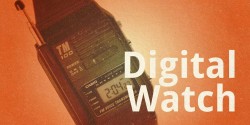Network neutrality is in effect, as of last Friday, June 12. That’s despite a request by major ISPs for the DC Circuit Court to put the FCC’s Open Internet Order on hold until their challenges get their day in court. Not unexpectedly, the DC Circuit denied that motion.
Effectively, the Court wasn’t impressed with the ISPs’ exhortation that they would suffer irreparable harm if the rules took effect, and that there was nothing prima facie defective with the FCC’s rules. That isn’t necessarily a strong indicator that the Open Internet rules will have an easy victory, though it does offer a glimmer of hope for the future of net neutrality.
Public Knowledge’s Harold Feld observes that the decision has some political value with regard to a Congressional Republican-led effort to write alternative open internet legislation that would end the Title II regulation of internet service as a utility, while attempting to still preserve some semblance of network neutrality. If the ISPs had won a stay against the FCC’s rules, that would have given Republicans more leverage to bring Democrats to their side to craft a bill that might get the president’s signature, under the reasoning that weaker a net neutrality law is better than no rules at all. However, now the Republicans will have to either make their bill even more attractive to Democrats, or just throw caution to the wind, make it a political play, and draft something far more partisan that is also more likely to get a veto, if it even passes.
Unless Congressional Republicans are able to pass their own net neutrality bill or successfully squeeze a rider killing Title II protections into a bill the president can’t afford to veto (like this one), challenges to the FCC’s Open Internet Order probably will start being heard in court sometime early next year. In the meantime the ISPs claims that real net neutrality protections will seriously undermine their businesses will be put to the test.
For internet radio listeners it means that wired and mobile broadband internet providers are prohibited from throttling or otherwise inhibiting your ability to access any particular station or service. If it happens, you have the ability to file a complaint with the FCC. At the moment this hasn’t been much of an issue for internet radio services, though it has been an issue with Netflix and video services in the recent past. But as more radio and music platforms start to offer high fidelity and higher-bandwidth services, it’s good to know that the risk of throttling or blocking is now lower.
One question that remains for me is the status of T-Mobile’s “Music Freedom.” This service allows T-Mobile customers to stream selected internet radio and music services without it counting against their data plans. While that sounds like a gift to users, the problem is that not every station or service gets this gift. In fact, as I argued last year, it looks a heck of a lot like discrimination, or an “internet fast lane,” something that should be prohibited under the Open Internet Order.
I’m not even sure the service would be legit if all music services and internet radio stations were given a free pass. That’s because music and radio would still be prioritized over all other traffic, whether its videos or app downloads.
These are the early days of net neutrality, yet. I’ll be watching to see how things pan out.
Apple Music To Serve Fewer Bits than Competitors
As a slight follow-up to my look at Apple Music last week, there has been some investigation into the bitrate and quality that the service will be serving up. Apparently it will stream music at 256 kbps, which is a lower bitrate than the paid subscription levels of its competitors, and also lower than the Beats Music service that Apple Music subsumes, all of which deliver 320 kbps, though in different codecs, like MP3 and Ogg Vorbis.
Apple has not confirmed what codec it will use, though I would be very surprised if it doesn’t use AAC, since it’s the standard of the iTunes store. However, a tangle of licensing contracts with labels and mismatches between the catalogs of tracks already in iTunes and Beats might make it difficult for Apple to unify a single codec standard.
As I’ve noted, because AAC is a more more modern efficient codec than MP3, I think 256 kbps in AAC is at least equivalent to 320 kbps MP3, if not actually better sounding. Still, 320 kbps AAC should still be just a little better, and provide some additional headroom to eek out more quality.
That said, most iTunes store customers seem perfectly happy with 256kbps files. I’ll admit that I’m hard pressed to hear any difference between iTunes 256kbps AAC files and those coming from any other paid streaming or download service, whether it’s Amazon or Google Play, Spotify or Rdio. Uncompressed Deezer Elite and TIDAL, however, are superior to my ears.
Of course, the proof will be in the listening. We have to wait until June 30 for that to begin.
Radio Survivor, Now in Podcast Form
Though we’re trying to make it hard for you to miss, I would be remiss not to note that we at Radio Survivor have finally launched our own podcast. We’ll certainly be covering issues important to digital and internet radio, including podcasting.
Our first episode has a feature on the Free Music Archive, which provides a valuable service to both musicians who want their music to be heard and shared, and to podcasters and internet stations looking for music unencumbered by high licensing or royalty rates.
We released episode #2 yesterday, where I discuss the DC Circuit’s net neutrality decision and we talk with Sabrina Roach of Brown Paper Tickets about her work supporting low-power FM in the Seattle area:
Please take a listen, then subscribe and rate the show at iTunes. Or subscribe with your favorite podcast listening app using our RSS feed.



